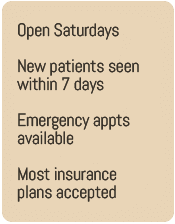Bone Marrow Donor Match: What You Need to Know
Brett Marlowe became ill on his honeymoon and was diagnosed with acute lymphoblastic leukemia just 11 days after his wedding. This aggressive cancer, which begins in blood cells and has a tendency to spread quickly throughout the body, is one of several types of blood disorders that require a bone marrow donor and transplant to treat or even cure patients.
Brett feels blessed by God to have found a perfect match in his sister, allowing him to maintain a positive outlook and continue to plan for a bright future with his wife. Increased awareness and action when it comes to donating bone marrow is crucial for saving lives, especially for those who do not have a match in their immediate family. But how does finding a bone marrow donor work? How lucky was Brett to have a sister who could donate to him? Here, we answer these questions and more.
How likely is finding a donor within your family?
Cases like Brett’s are not unheard of, but the consensus is that only around 30 percent of people will be able to find a suitable bone marrow donor in their family. When there is a match, it is most often a sibling. Matches from parents do occur, but they are exceedingly rare.
Receiving a donation from a family member is ideal for many, but for more than two-thirds of the population, it simply is not an option. This is why marrow donation banks are so important; most of the people who need marrow transplants must rely on the donations of volunteers to survive.
How likely is finding a bone marrow donor in a bank?
This is where things get a bit more complicated – among people who must rely on a bank for their marrow transplant, the likelihood of finding a match varies widely. And the strongest factor in determining this likelihood is ethnic background.
Human leukocyte antigens, or HLA markers, are proteins that allow your body to determine which cells are meant to be inside your body and which are not. These proteins are the basis upon which your body will accept or reject a bone marrow transplant. If the HLA markers do not match, the marrow cannot be used. Siblings are the most common family members to be able to provide a match because they have a higher chance of carrying the same markers. But outside the family, the chance of finding someone with the same HLA markers as you depends in large part on ethnic background due to the way these proteins are passed down through generations.
This creates a large disparity. The majority of donors to marrow banks are white, with only a small percentage of donations coming from people of color. This means that people of color have a much more difficult time finding donors. For example, at Be The Match, a prominent marrow bank, the likelihood of finding a donor as a white person is around 77 percent, while for African American people it is only about 23 percent.
Why should you join a bone marrow donation bank?
The only way to close this gap and help match more patients with life-saving donations is to join a bank and spread the word. The higher the number of people willing to donate bone marrow, the more lives will be saved. The impact you can make as a single person willing to donate can be the difference between life and death.
While donating bone marrow may sound scary, the most common modern method of donation does not require invasive surgery. In fact, it is hardly more invasive than giving blood. In simple terms, your blood will be drawn and the stem cells used to make blood cells will be filtered out, at which point your blood will be returned to your body. While some discomfort is expected through this process, the life-saving power of your donation far outweighs it.
If you need a none marrow donor, don’t give up
Most importantly, never give up hope when looking for a bone marrow match. Waiting for a match from a bank can be disheartening, especially for those belonging to certain ethnic groups. But while it is certainly easier to find a match from someone who shares your ethnicity, a match could come from anyone. The more people who sign up with banks, the more likely it is to find a match, and people sign up every day.
Looking for a bone marrow transplant, especially if you do not have a match in your family, can be a disheartening experience. That is why it is so important for more people of all ethnic backgrounds to sign up as donors. The larger and more diverse the donor pool becomes, the higher the chances of surviving leukemia and other blood disorders for thousands of patients like Brett.





